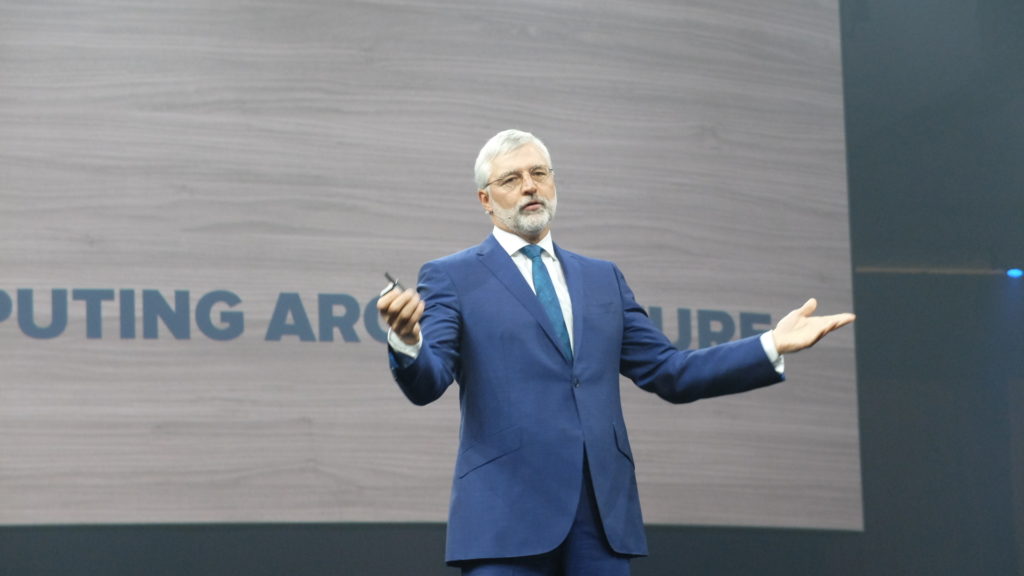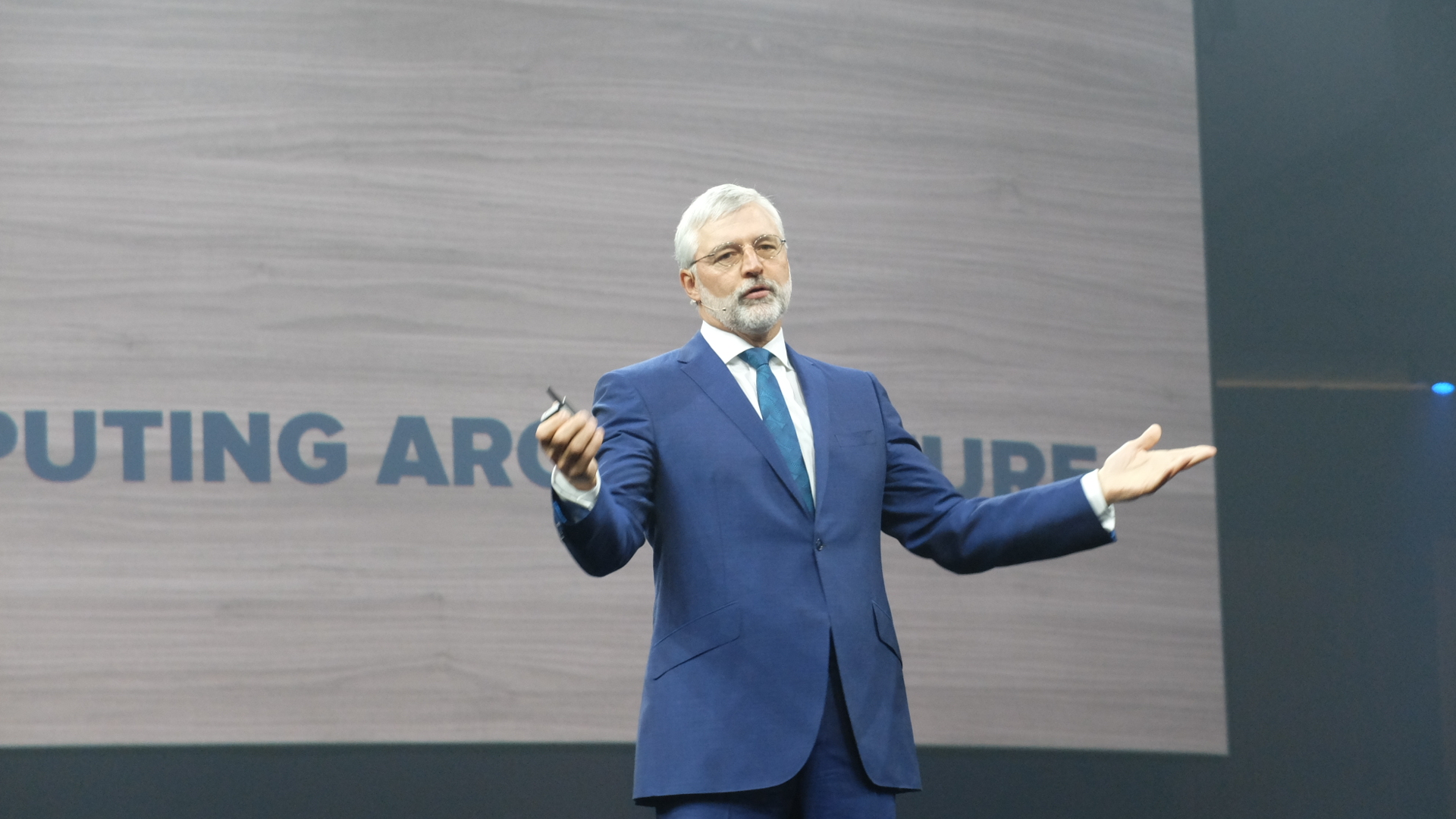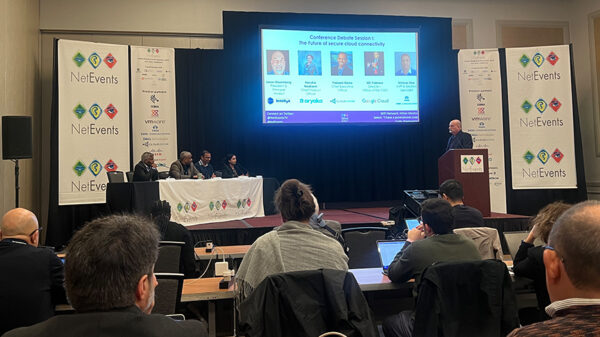SAN JOSE, Calif.—At NetSuite’s annual Suiteworld Conference, CEO Zach Nelson trumpeted the company’s achievements over the years as a result of its bold vision of offering a business system that is delivered only over the internet. In his keynote address, Nelson said the 18-year-old company is set to hit the US$1-billion run rate this year, thanks to the efforts of its 5,000 employees worldwide, and the more than 30,000 companies, subsidiaries, and organizations that use its products.

Zach Nelson, NetSuite CEO: “The cloud has completely won. It’s the last computing architecture.” PHOTO: MELBA BERNAD
“Every type of company on the planet is using NetSuite,” said Nelson, noting that every industry in the Standard Industrial Classification (SIC) listing is using the company’s product. “Clearly it is the most widely used business system in the cloud in the world today.”
In 2015, NetSuite was ranked 6th in the Top 10 Financial Management System vendor list of Gartner, and in 2016 it is ranked the No. 1 Cloud ERP vendor. In terms of marketshare, NetSuite grew 45% in the last year, beating the performance of Microsoft (10.6%), Oracle (8.3%), Infor (4.2%), Sage (1.0%), and SAP (-12%).
If the turnout at this year’s Suiteworld is proof of the company’s phenomenal growth, NetSuite has truly become a successful tech startup story. According to Nelson, this year’s Suiteworld conference attracted 8,000 attendees, an astounding increase from the 2,000 attendees it had in the first Suiteworld held four years ago. “Every year, Suiteworld just gets a lot bigger and bolder.”
Nelson also noted the company’s growing ecosystem of partners, giving a special shout out to Dell Boomi. “Partners have incredibly become important to our customers. Every time we sell NetSuite to a new client, 70% of the time at least one partner product is going with that implementation. We can’t underestimate the power of partners that we’ve built on top of the NetSuite platform,” said Nelson.
The NetSuite CEO also cited the company’s first client, Pixmob, describing it as “a great company doing amazing things in the events space. A great example of one of the smaller companies being really big.”
Core capabilities
When NetSuite was founded by Evan Goldberg in 1998, the vision was to build a system to run a business, deliver only over the cloud, and embed native e-commerce as a core capability of the cloud.
Nelson noted that while NetSuite has grown fast as an FMS vendor, “the founders really didn’t set out to build a financial management system. The big idea was to build a system to run a business. And that is still the big idea behind NetSuite. But the real idea is how to enable every company to go from end-to-end with a single system.”
Nelson also related that in the early days, they were faced with the temptation to put servers on site. “We had a big customer that didn’t believe in the cloud and wanted that server to go on site. Our head of sales would come to us and say: ‘Can’t we just do it. It’s our first million dollar deal.’ We’d say no because once we do that we’d break our [business] model. We had to be cloud first, cloud only all the time. You have seen other companies that talk about hybrid deployments of cloud applications. Once you do that, you’ll never be able to solve the problems that we’ve solved over the cloud. You have to be cloud-native first.”
The embedded e-commerce capability was Larry Ellison’s idea, according to Nelson. Ellison, Chairman of Oracle, financially supported Goldberg when the latter set up NetLedger (the original name of the company) after leaving Oracle. “Larry Ellison made sure it had a web store because people are going to buy things over the internet. And that has become the notion of embedding native e-commerce as a core capability of the product.”
The ‘magic’ of NetSuite
Nelson also stressed that the “magic” of NetSuite’s SuiteCloud platform is customization. Customization is built into the core of the product so customers can do complex changes to the NetSuite data model.
“In the first instances of the product, we knew that all of you would have to change the data model. We had two problems to solve, one is to make sure the customers could change our data model so that they can run their business, so they can build the necessary workflows they needed. Because we were running the software, we had to be able to upgrade those customizations every time we touched it.
“Very few companies have figured out how to do this. In fact, most of the companies that are building cloud applications still haven’t figured it out. They have confused the fact that if everybody ran on the same code base, nobody could change it. That is not the case with NetSuite. Everybody is running the same code base, but believe me, Jersey Jack Pinball, for example, runs a very different looking system than NetSuite does.”
Venture capital fund
Meanwhile, to accelerate the application development on its platform, NetSuite will create the NetSuite Global Ventures, a venture capital fund that will invest in third-party developers who are building built-for-Netsuite applications and vertical applications, according to Nelson.
Furthermore, to become more profitable, the company continues to invest in products and acquire companies for it to grow and innovate, according to Nelson. One of the strategic acquisitions was Bronto Software Inc., a cloud-based commerce marketing company.
“The founding vision of NetSuite is still the basis of everything we do today,” says Nelson, who is also a former Oracle executive. “When [the founders] started the company talking about delivering complex business application over the Internet, nobody believed it would happen. And today, people can’t get there fast enough. The cloud has completely won. It’s the last computing architecture.”



















































































































